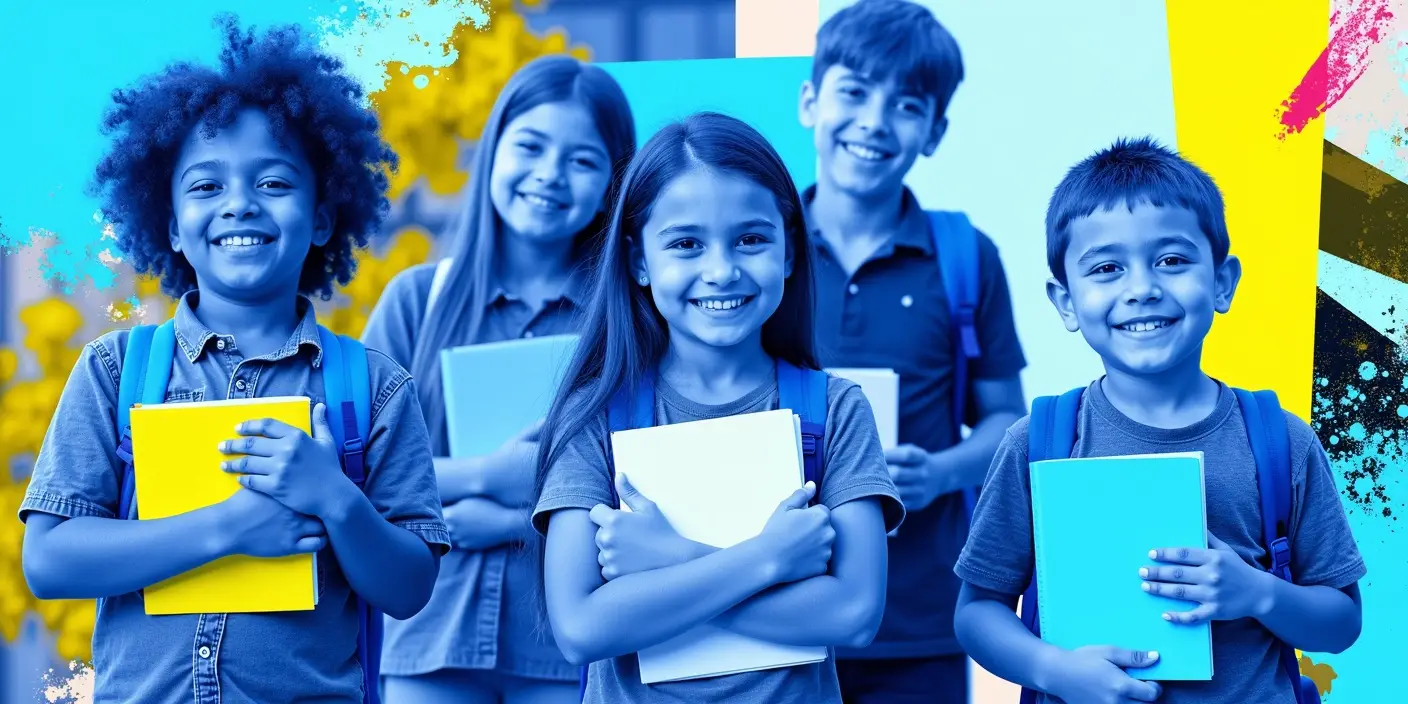The rapid pace of technological and industry change has made continuous learning essential for modern workers. We’re all expected to regularly update our skills so we can stay competitive in our current work roles and take on newly emerging roles.
That’s why one of the most critical goals in education today is to nurture a love for school that lasts long after graduation. In fact, the World Economic Forum’s 2025 report, ranks curiosity and lifelong learning among the top 10 most essential skills for the future workforce.
However, the traditional educational approach — where students sit still while listening to lectures for six hours, ask permission before doing anything, and learn from a “one-size-fits-all” curriculum that doesn’t account for their specific needs — leaves many children less than enamored with learning. When we ask kids what they like at their “regular school,” they typically list P.E., recess, lunch, and their friends. Nothing about learning.
One of the primary commitments of our flagship school, Alpha, in Austin, Texas, is that students will love school (for the learning).
Here’s how we keep that promise.
Igniting a Love for School from the Moment Students Arrive
Alpha School is designed to foster a mindset of growth and engagement through student-centered learning. The result: Students wake up excited to learn every day.
Every school day starts with a group activity called “Limitless Launch,” where students engage in a short bout of physical activity, strategies to develop a growth mindset, and set goals for the day. For example, ten-year-old Nadine (surname withheld to protect her privacy) focuses on how many skills she can master within the 30-minute time blocks she gives herself for each subject. “I set a goal for myself for the total,” she said.
By the end of the launch activity, students are ready to start the academic block. The morning exercise has energized them, boosted their mood, and made them ready to focus. The mindset, strategies, and daily plan have given them a sense of clarity, agency, and ownership regarding their own learning.
AI-Powered, Student-Centered Learning
The academic block embodies the core of what sets Alpha apart: the 2 Hour Learning model. In this system, students master core academic subjects in just two hours per day, learning twice as much, twice as fast.
Alpha students spend their time in the two-hour academic block learning with an AI tutor and adaptive learning apps. As students learn math, reading, science, and social science, the technology assesses their strengths and addresses gaps in their knowledge in real time. The result is a completely personalized and engaging education.
Instead of feeling frustrated because they’re struggling to keep up with the class or bored because they’re waiting for the class to catch up with them, each kid receives exactly what they need to know at the pace they need to know it. The AI doesn’t care how many times a student needs to review a concept; it works with that student until they understand that concept. At the end of the academic block, the computer dashboard shows students the daily and weekly goals they’ve met and what still remains to be done, adding to their sense of ownership.
That personalized attention has resulted in all Alpha classes climbing to the top 1% in the country by the time they leave first grade, no matter where they were academically when they enrolled in Alpha. Getting kids on track academically is the first step to showing them their potential. Competence leads to confidence and the love for school that’s now essential to life success.
Also, since the approach to learning is based on mastery, students can advance far beyond their current grade level. Imagine the pride and confidence a fifth grader feels when they’re working on reading comprehension at a seventh-grade level and at an eighth-grade level for both science and math. That’s exactly the case with Nadine.
Alpha Guides Make Students Feel Seen and Supported
Strong, positive relationships with adults in the school setting serve as a foundation for students’ academic motivation, emotional resilience, and sense of belonging. When a student knows there’s an adult who genuinely cares about their well-being and believes in their potential, they are more likely to engage in learning, take academic risks, and persevere through challenges.
At Alpha, the traditional teacher’s role has been transformed from lecturer to “guide.” These guides serve as supportive mentors who build meaningful relationships with each student, offering motivation and emotional support, ensuring each student stays engaged.
By freeing educators from time-intensive tasks like daily lesson planning and grading assignments, Alpha allows them to focus on getting to know students deeply. The guides understand what excites each student, what obstacles specific students face, and how best to support their growth.
For example, one student who enrolled as a fourth grader was struggling academically at that time. One of the guides realized that the student had a passion for football, specifically the Denver Broncos, and used that connection to spark a breakthrough. The guide showed him the class leaderboard and asked where he would be if this were an NFL draft. The student concluded that he wouldn’t be drafted at all, based on his performance, and that relatable reference to football motivated this disengaged student to take his studies seriously.
Nadine related that students can also turn to the experts for academic explanations and “coaching calls.” “You can ask them if you’re really struggling and you still need some help,” she said. “The guides are really motivating, and no matter how hard your stuff is, they always make it so that in the end you achieve your goals.”
Growing Students’ Love For School By Honing Their Life Skills
In the afternoons, students engage in workshops and collaborative projects that focus on practical, real-world skills such as coding, debates and public speaking, leadership, entrepreneurship, and creative problem-solving. These experiences make learning more meaningful and personal.
For older students, the afternoons can be a gateway to real-world exploration, including internships and independent research. These enrichment opportunities help students move beyond passive knowledge acquisition, allowing them to test ideas, apply skills, and grow in confidence. When students are given the freedom to follow their interests and take ownership of their learning, they begin to see school not just as a place of possibility, experimentation, and expression — key ingredients in cultivating lifelong learners.
The Future is Student-Centered Learning
By combining engaging education and a “student-first” approach, Alpha has realized its goal of sparking a love for school and school within students.
How do we know? Every six weeks, we ask our students two questions. The first question is “Do you love school? Yes or no?” Last time we asked, 93% of our students said that they loved school.
The second question is, “Would you rather go to school or go on vacation?” And 65% of students have said that they would rather go to school.
Curious to see how engaging education can be?




